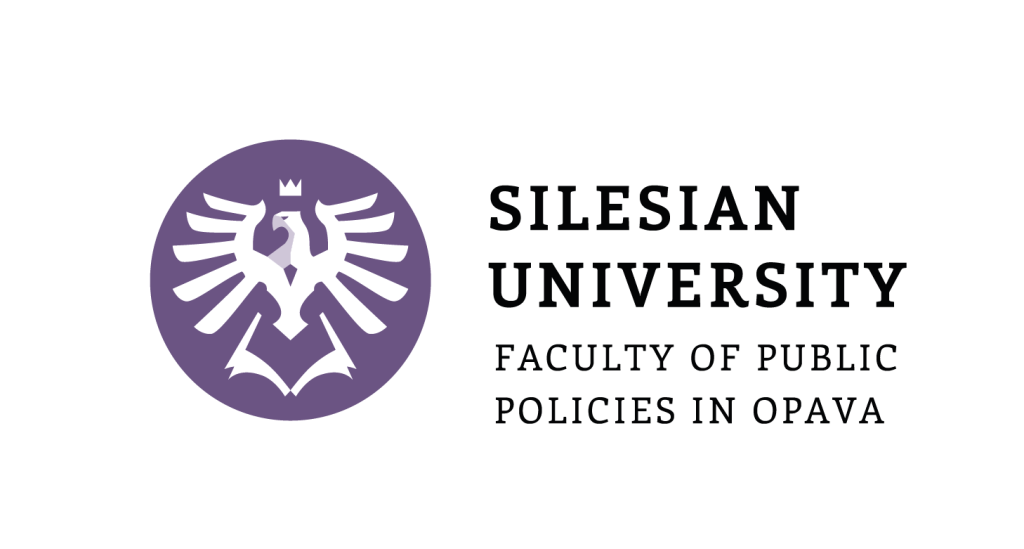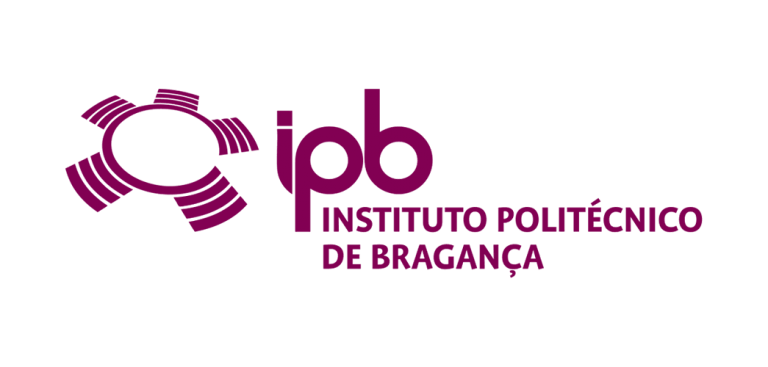Project coordinator
The Polytechnic Institute of Bragança (IPB) is a higher education public institution with a defined mission in creating, transmitting, and diffusing technical-scientific and professional knowledge through the articulation of study, teaching, applied research and experimental development. IPB belongs to the European Network for Universities of Applied Sciences (UASNET), which main objectives include the transferability of professional skills and the integration of applied research in their professional and technological education mission. Founded in 1983, IPB is presently composed by six schools. Its activities embrace a wide area of knowledge and technology, namely, arts, communication and multimedia, business sciences and law, Public Administration, education and teachers training, agriculture sciences and natural resources, health, tourism, sports, hospitality, welfare, technologies, and engineering. The IPB is one of the few Portuguese Higher Education Institution (HIE) awarded with both the ECTS and the DS Labels, thus assuring the quality and the transparency of the management and the fair academic and professional recognition of its qualifications (www.ipb.pt/ectsguide, www.ipb.pt/sd). IPB is a certified institution awarded with ISO 2001:2008 standards certificate, our Planning and Quality Management Office implements mechanisms of quality control to improve quality of services and follow financial implementation of projects. The Polytechnic Institute of Bragança (IPB) is an international and multicultural institution where 36% (3600 out of 10000) of its students are non-Portuguese, from 70 different countries. IPB has also a mobility programme with widely recognized success, with an annual mobility of around 1000 incoming and outgoing students and 400 principals, teaching and nonteaching staff members, as the result of the collaboration with several HEIs from all over the world. Currently, 25% of the IPB graduates have had an international learning mobility experience, above the 20% European Union 2020 goal. The IPB is one of the few Portuguese HEIs awarded with both the ECTS and the DS Labels. Within Erasmus programme, IPB is/was coordinator and partner in 28 Erasmus academic projects, including 19 strategic partnerships. IPB takes part of the Erasmus+ NOW Portugal Consortium – Internships for Employability, representing the Portuguese North Region and enhancing the employability of graduates. Started in 2014, the IPB double diploma international platform is shaped to promote joint academic and research outputs, staff development on the European HE best-practices, and to improve the partner HEIs’ international relations capacities. In six years, the IPB DD platform involved more than 900 students and 250 staff of more than 50 HEIs and 20 different non-EU Countries, including Latin America, South Mediterranean, Western Balkans, Easter Partnership, Russia Federation, Central Asia, and Africa. The IPB has the most qualified teaching staff of the Portuguese HE polytechnic system, with 82% of its board holding a PhD degree, and hosting R&D units, namely the Mountain Research Centre (CIMO) and the Research Centre in Digitalization and Intelligent Robotics (CeDRI), both assessed with the maximum mark of Excellent by the Portuguese Foundation for Science and Technology. The IPB has indicators of impact and excellence of its scientific production and applied research, namely at the U-Multirank, Scimago Institutions Rankings, Shanghai Ranking and Clarivate Analytics Highly Cited Researchers. The IPB is a founding member of the Brigantia-Ecopark, a privileged space for technology-based companies, start-ups, and spin-offs, and of the more collaborative laboratory, an association of public and private organizations and companies, aiming at the creation of a knowledge-based regional economy.
Project partners
The City University of Applied Sciences (in German: Hochschule Bremen) is a public Fachhochschule, a University of Applied Sciences, located in Bremen, Germany. In 1982, this University evolved from the fusion of four Universities of Applied Sciences: the Universities for technology, business, social pedagogy and social economy, and nautics. The history of the City University of Applied Sciences traces back to the foundation of the Technikum, a School for Civil Engineering and Shipping in 1894 and the foundation of the Social Women’s‘ School, the first School of Social Work in Bremen in 1918.
The City University of Applied Sciences is located at four sites. The central site, where the head office and the Faculties 2 to 5 are arranged, is located in Bremen Neustadt in the street Neustadtswall. The Faculty 1 and the School of International Business can be found at the site Werderstraße. A further site is located near the Bremen Airport where the Center of Computer Science and Media Studies as well as the Institute of Aerospace Technology are arranged. The International Graduate School is situated at the Süderstraße site.
Around 8.800 students of 69 degree courses (thereof 43 Bachelor-/26 Master’s degree courses) in five faculties are matriculated at the Bremen University of Applied Sciences. More than 40 degree courses consist of an obligatory stay abroad being composed of a study and internship abroad. Being practically oriented is another characteristic of all degree courses of the University of Applied Sciences which is reflected in the obligatory internship phases. Further more the students are included in many research projects. In 2004, the University of Applied Sciences founded the International Graduate Center (IGC) for being able to provide extra-occupational and full-time post-graduate degrees. The master’s degrees are offered predominantly in the domain Management which will end in the degree Master of Arts (M.A.) or Master of Business Administration (MBA).

The Silesian University in Opava is a small regional university focused on individual approach to students and employees. The Silesian University in Opava was established after November 1989, first as two faculties of Masaryk University in Brno, then in 1991 the Silesian University with its seat in Opava. University currently has five units: the Faculty of Philosophy and Science in Opava, the Faculty of Business and Entrepreneurship in Karvina, the Faculty of Public Policies in Opava, the Institute of Mathematics in Opava and the Institute of Physics in Opava. Although the Silesian University in Opava with its 6,500 students and 300 academic staff is one of the smaller Czech universities, it offers almost a hundred study programmes and fields of study in both Czech and English in all forms and types, from Bachelor’s, through postgraduate Master’s to PhD. Silesian University in Opava also offers dozens of courses within the framework of lifelong learning and the University of the Third Age. It is a member of the European University Association, a founding member of the Interregional University Council, maintains contacts with a number of foreign universities and cooperates intensively with the nearest universities, especially in Poland and Slovakia.The Faculty of Public Policies in Opava provides a wide range of courses which enable graduates to find employment in the public service sector from nursing over pedagogical specialization and social work to the public administration sphere. All the study programmes are based on the European Credit Transfer System (ECTS). Scientific and educational activities are provided by four departments (the Institute of Paramedical Health Studies, the Institute of Pedagogical and Psychological Sciences, the Institute of Special Pedagogy and the Institute of Public Administration and Social Policy). The academic staff of the Faculty of Public Policies is involved in implementing a multitude of domestic and international research projects and grants, which creates interesting opportunities for various research activities of students as well.
The National Institute of Administration, P.I. (INA, P.I.) fundamental mission is the creation, transmission, and dissemination of knowledge in the field of Public Administration, contributing, through training, teaching, scientific research, and technical advisory services, to the innovation and modernisation of the Public Administration and to the qualification, training, and development of its human resources. The implementation of its mission aims to work in conjunction with Universities and Polytechnic Higher Education Institutes, benefiting from their experience and technical and pedagogical support, as well as in articulation with the central and sectorial bodies responsible for the reform of the Public Administration and for the coordination of the State’s business sector, cooperating in the fulfilment of the respective attributions. INA has more than 100 professionals.
i) From a training and qualification point of view:
INA develops a range of training courses for public entities, assuming a short duration training model and with an important practical aspect in the application of knowledge in a professional context in Public Administration. INA is also the coordinating body of the training system in Public Administration, holding a set of competences, namely the coordination of the system and the management of professional training.
ii) From an investigation, development, and innovation point of view:
INA develops innovative approaches with a view to empowering people, teams, and organisations of the Public Administration, contributing to the improvement of management and public service. It promotes the implementation of innovative strategies and practices in the areas of development of human resources, work environments and management models, supported by experimentation, training and recognition of innovative ideas and solutions that generate public value and debate knowledge about Public Administration, Public Policies and Public Service Management. It stimulates collaborative research and knowledge creation networks in the field of public policies in public administration and management and supports agencies and services in organisational transformation and development processes through technical assistance and consultancy.
iii) From a cooperation point of view:
INA ensures international cooperation with peer institutions, in the fields of developing and empowering human resources in the Public Administration, and innovation in management. It also manages the INA Library and the management, operation, and development of the INA Publishing House.
The Foundation for Studies and Training in Local Authorities (FEFAL Foundation), which succeeded the Centre for Municipal Studies and Training (CEFA), was established on July 28, 2018, by the National Association of Portuguese Municipalities (ANMP), and began operating on January 1, 2019, in Coimbra. Through delegated powers from the Portuguese Government, FEFAL is now the central training institution for local public administration. Furthermore, it’s a certifying and an accreditation entity, being also the only competent training entity to carry out legally mandatory training actions within the scope of Local Administration. According to its statutes, the FEFAL foundation pursues the following purposes: i) contribute for the modernization of local administration through information and training actions, research, technical advice, and the publication of specialized works; and ii) support research to achieve development and innovation in local administration.
In fact, with a national range, FEFAL carries out information actions, training courses, research activities, technical advice, international technical cooperation and promotes the publication of specialized studies on topics relevant to the development and innovation of Municipalities. We focus our training in areas like: Organization and Administrative Activity; People Management and Leadership; Management of Material and Budget Human Resources; Information, Knowledge, and Technological Resources; Quality, Innovation and Modernization; Internationalization and Community Affairs; Local Development. More recently, the FEFAL Foundation has gained a Centro Qualifica – a Qualifying Centre for Local Administration, looking for the increasing of qualification and education levels of local public administration workers. FEFAL is currently promoting its own Training Program for Innovation in Municipalities, designed to apply and adapt the Strategy for Innovation and Modernization of the State and Public Administration 2020-2023 to the local context. The aim of this program is to give workers, from local public sector, technical and behavioural skills, favouring an organizational culture oriented towards the continuous generation of ideas and experimentation, involving different organizational profiles in the design and implementation of innovation projects, transforming municipal organizations, redesigning processes, offering new products and services through new models of relationship with citizens. Nowadays, the FEFAL staff is about 25 workers and 3 interns, distributed by its different areas of activity.




